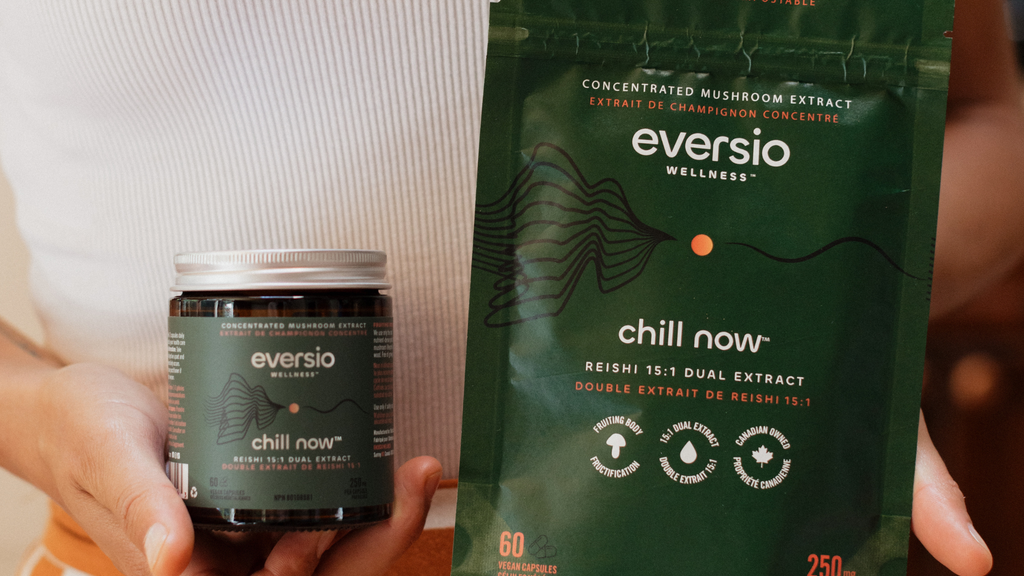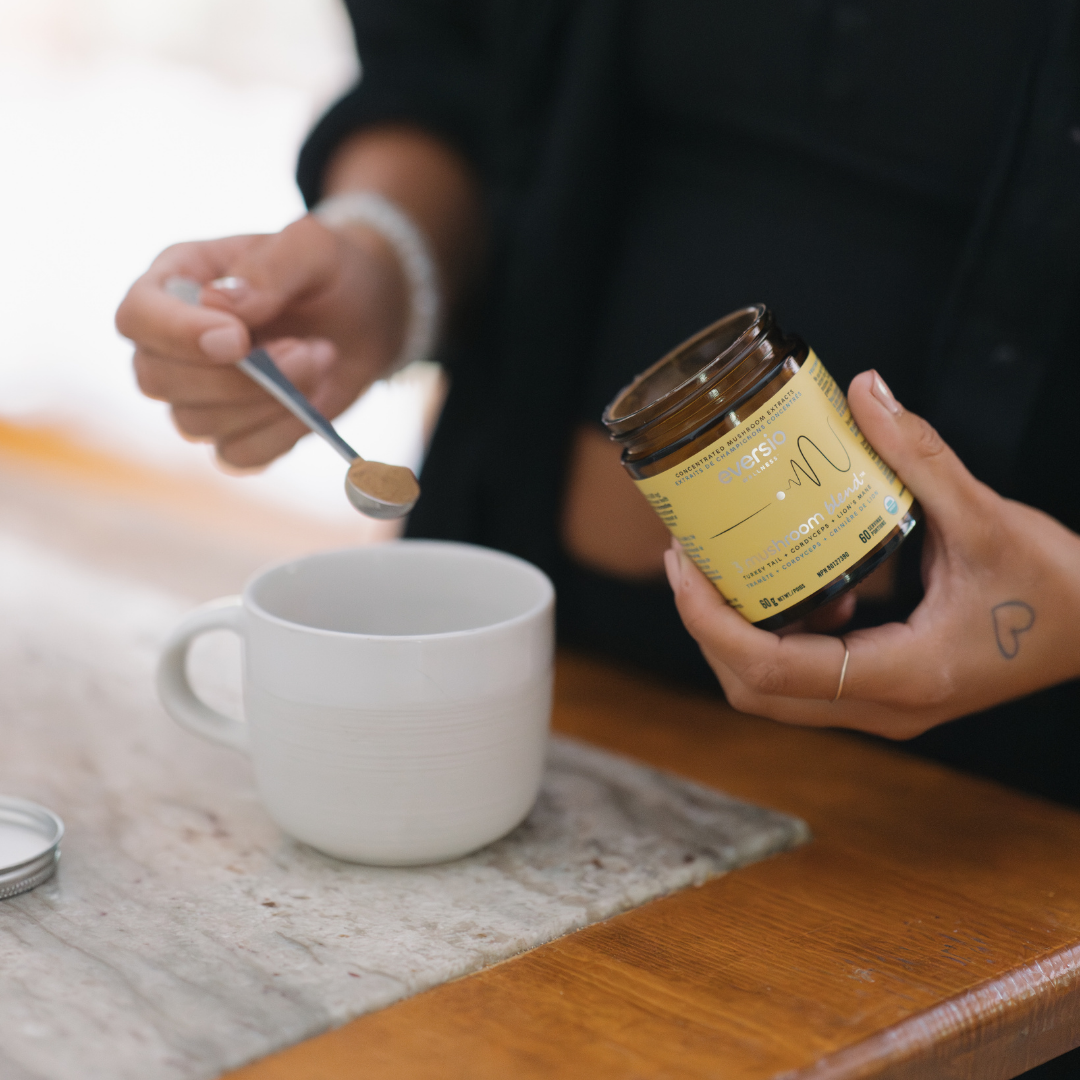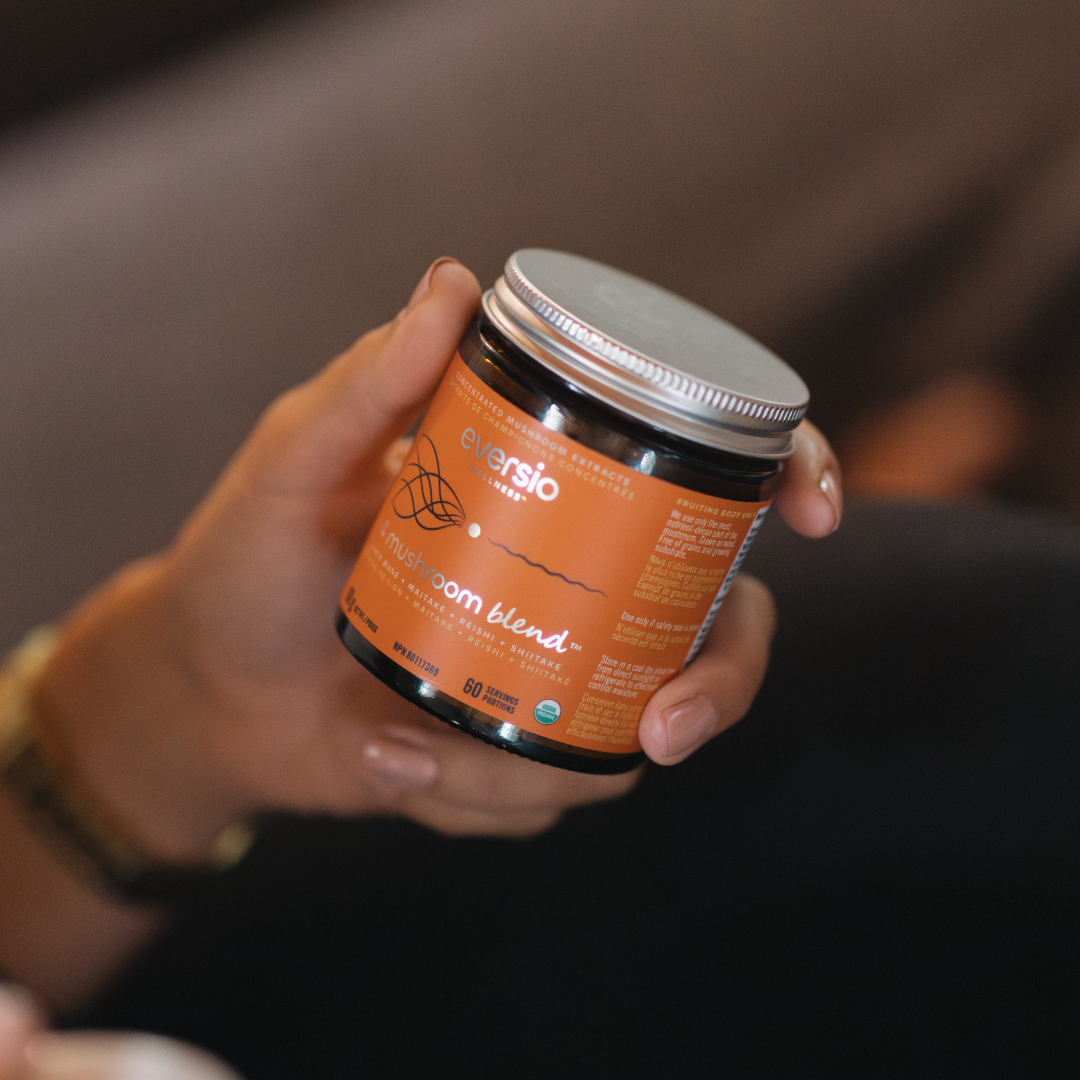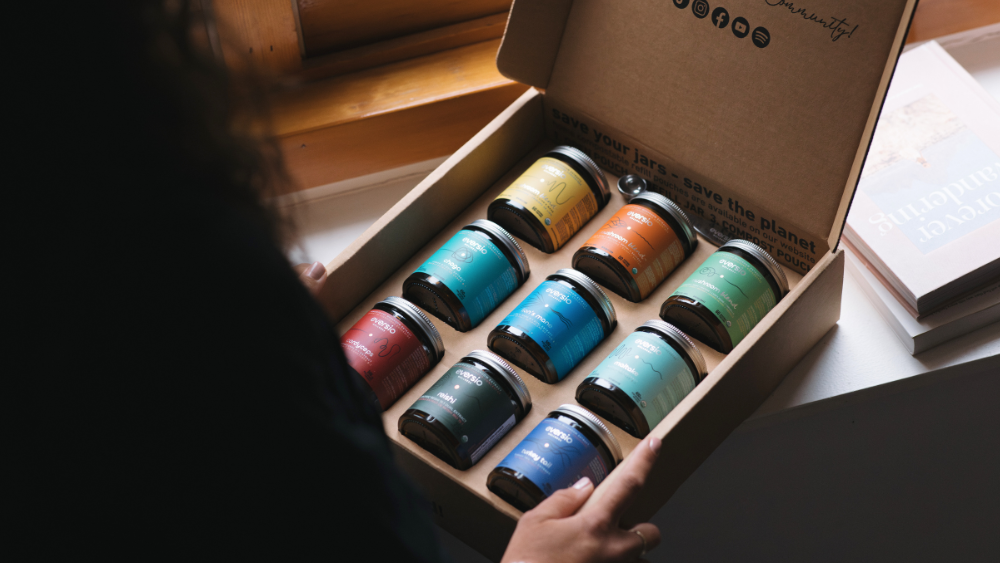April 18, 2024 | Dr. Silvana Jakupovic, ND
Mental health is a canvas painted with diverse experiences, emotions, and challenges. For the 2SLGBTQI+ [*] community, this canvas often holds unique and complex hues shaped by societal factors that range from stigma and discrimination to the search for acceptance and identity. Amid these layered experiences, the quest for mental wellness becomes a personal journey and a communal narrative.
In this narrative, nature offers its own set of allies. Among them, medicinal mushrooms emerge as a notable and natural approach to mental health support. These fungi, respected for centuries for their healing properties, present a promising path for those seeking holistic wellness solutions. Today, we aim to unfold the tapestry of how specific medicinal mushrooms can be instrumental in supporting the mental health of individuals in the 2SLGBTQI+ community, blending ancient wisdom with modern needs.
[*] The language and terms related to 2SLGBTQI+ identities are constantly changing and developing. This means that the definitions provided here are just an introduction to the wide range of identities and topics within the 2SLGBTQI+ spectrum.
Pride Month and Mental Health Awareness
Mental health in the 2SLGBTQI+ community is a landscape marked by resilience and significant challenges. Studies have consistently shown that individuals identifying as 2SLGBTQI+ face higher rates of mental health issues compared to their heterosexual and cisgender counterparts. These disparities are not rooted like their sexual orientation or gender identity but rather in the societal response to them.
The challenges are multifaceted. Discrimination, whether overt or subtle, creates an environment of chronic stress. The fear of rejection from family, friends, and society can lead to feelings of isolation and loneliness. Bullying, harassment, and violence exacerbate these experiences, contributing to a heightened risk of anxiety, depression, and even suicidal thoughts.
These mental health challenges are further compounded by barriers to accessing supportive and affirming mental health care. 2SLGBTQI+ individuals often face healthcare providers who lack understanding or sensitivity to their specific needs, leading to a reluctance to seek help. Moreover, internalized homophobia and transphobia can create a deep-seated sense of self-stigma, making the journey towards mental wellness even more difficult.
The statistics paint a sobering picture. According to the National Alliance on Mental Illness, 2SLGBTQI+ adults are more than twice as likely to experience a mental health condition as heterosexual adults. The Trevor Project reports that 40% of 2SLGBTQI+ youth seriously considered attempting suicide in the past year, with more than half of transgender and nonbinary youth having seriously considered it. These numbers are not just data points; they represent real individuals navigating complex emotional landscapes.
Mental Health Advocacy: Pride Month
Addressing these mental health needs requires a multifaceted approach. While traditional mental health interventions play a crucial role, there is also a growing interest in complementary and alternative therapies. This is where medicinal mushrooms step in, offering a holistic approach that has been a part of healing practices for centuries across various cultures.
Pride Mental Health Strategies: Medicinal Mushroom Benefits
In the following sections, we will explore the world of medicinal mushrooms, their unique properties, and how they can be a part of a supportive strategy for enhancing mental wellness within the 2SLGBTQI+ community. From the adaptogenic power of Reishi to the neuro-supportive qualities of Lion's Mane, these natural allies hold a promise of support and healing for those on their mental health journey.
Lion’s Mane: Medicinal Mushrooms for Anxiety and Depression
Lion's Mane mushroom has recently gained attention for its potential to treat mental health conditions like anxiety and depression. Research indicates that Lion's Mane can significantly impact brain health, particularly in the hippocampus, a region critical for emotion and memory processing [1]. This is particularly relevant in mood disorders, where the hippocampus is often smaller than normal [1].
A study focusing on individuals supplementing with Lion's Mane for eight weeks revealed increased serum pro-brain-derived neurotrophic factor (pro-BDNF) levels [2]. Pro-BDNF is essential for brain health; its deficiency or dysfunction can lead to mood disorders by decreasing excitatory neurons and glutamate [3]. Lion's Mane's role in increasing pro-BDNF levels suggests its potential to improve brain health and manage mood disorders.
Another research study highlighted Lion's Mane's efficacy in reducing mild anxiety symptoms, attributed to its anti-inflammatory properties and ability to promote neurogenesis, especially in the hippocampus [1]. This is crucial, given that individuals with certain mood disorders might have a reduced hippocampal region. Thus, Lion's Mane's capacity to foster hippocampal growth offers promising alternatives for anxiety management.
Regarding depression, studies have shown that Lion's Mane might exert antidepressant effects by enhancing neurogenesis in the hippocampus [1]. This is critical in improving brain function and alleviating mood disorder symptoms. Furthermore, Lion's Mane contains terpenes, notably hericenones, which can cross the blood-brain barrier [4,5]. Hericenones not only promote brain cell growth but also have anti-inflammatory and antidepressant-like properties, making Lion's Mane a potential therapeutic agent for mental health issues [4,5].
Reishi: Medicinal Mushroom Therapy
Reishi mushrooms have been studied for their calming effects on anxiety and sleep disturbances. Research shows that Reishi can increase sleep duration and enhance the non-rapid eye movement (NREM) sleep phase, leading to deeper sleep [6]. This is particularly beneficial for those with anxiety-related sleep issues.
Additionally, Reishi has been found to have antidepressant properties, with its polysaccharides impacting mental health positively [7]. It works by blocking 5HT2A receptors, similar to some antidepressants, which help in treating depression, anxiety, OCD, and insomnia [8,9]. Therefore, Reishi could be an effective natural remedy for improving sleep quality and alleviating depressive and anxiety symptoms.
Cordyceps: Emotional Well-Being Pride Month
Cordyceps mushroom is gaining recognition for its potential in treating anxiety and mood disorders. Research links low ATP (adenosine triphosphate) levels, essential for energy, with mood disorders like anxiety [10]. Those with such conditions often have reduced ATP levels. Cordyceps stands out for its ability to boost ATP production, likely due to its antioxidant properties that enhance cellular and mitochondrial health, leading to increased ATP generation [11].
Anxiety often induces a chronic "fight or flight" response, causing energy fluctuations and exhaustion. Cordyceps addresses this by not only enhancing energy production but also stabilizing energy levels throughout the day, offering a natural solution for the energy-draining effects of anxiety [12].
In the context of depression, studies show that Cordyceps extracts can alleviate depressive and anxiety symptoms. This effect is attributed to the mushroom's anti-inflammatory properties and its impact on neurotransmitters. A notable finding is the reduction of glutamate levels in the brain’s amygdala, a significant area linked to emotion processing [13]. This is crucial as current research indicates a connection between glutamate imbalances and the development of depressive disorders [14]. Cordyceps, therefore, emerges as a promising natural remedy for depression, targeting key brain areas and neurotransmitter levels.
Pride Month: Mental Wellness with Mushrooms
As we journey through the intricate landscape of mental health, especially within the 2SLGBTQI+ community, it becomes evident that support and healing can take many forms. Medicinal mushrooms, with their rich history and growing body of scientific backing, offer a unique and natural path to mental wellness. These fungi are more than just supplements; they represent a convergence of nature's resilience and the human search for holistic health.
In exploring the potential of mushrooms like Reishi and Lion’s Mane, we do not just uncover their stress-relieving or mood-enhancing properties; we also embrace a broader philosophy of care. This philosophy acknowledges the diverse and complex needs of the 2SLGBTQI+ community and offers an additional tool in the toolkit for combating the mental health challenges that many face.
However, it is essential to remember that while medicinal mushrooms can be powerful allies, they are part of a larger wellness strategy. They should complement, not replace, traditional mental health treatments and should always be approached with the guidance of healthcare professionals. Moreover, mental health care is not just about individual interventions; it involves creating supportive communities, advocating for inclusive and informed healthcare, and continuously fighting to dismantle the societal stigmas that contribute to mental health disparities.
Related Articles
The Versatility of Lion’s Mane























Leave a comment
All comments are moderated before being published.
This site is protected by hCaptcha and the hCaptcha Privacy Policy and Terms of Service apply.